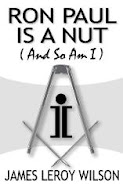Scott McConnell writes:
At this writing, the staffing of a new foreign-policy apparatus is not complete. But the broad strokes are plain. At CIA, there is a new emphasis on loyalty to the president over readiness to provide objective analysis; Porter Goss will ensure that the agency provides information that the White House wants to hear. At the cabinet level, the direction is clear. Colin Powell is leaving, exhausted by his losing tussles with the Pentagon, semi-humiliated by the president. His crime was that he was right about war in Iraq, right that we needed allies and more forces for the invasion, right that postwar Iraq would be chaos and quagmire. His caution about the use of force —the Pottery Barn rule—must have irked the president every time he saw him, so better to banish him. Promoted instead are those who were consistently wrong. Rumsfeld remains, though his neocon aides “stovepiped” phony intelligence about Iraq’s WMD capacity, he botched the post invasion, and was responsible for the Abu Ghraib torture. Stephen Hadley, who “forgot” to remove the false claims about Iraq’s yellowcake purchases from the president’s 2003 State of the Union speech, is the new National Security Adviser. Condi Rice, whose TV musings about “mushroom clouds” helped frighten a nation into an unnecessary war, becomes the nation’s top diplomat.
What became of the realists? Like the neocons, they are only policy intellectuals and bureaucrats, dependent on the politicians who appoint them. Among educated Americans, they won the foreign-policy debate decisively. No one doubts it. There are scores of bright people from George Will to William F. Buckley to Kenneth Pollack who are born-again realists; no one has recently converted to neoconservatism. But the realists did not win the debate inside Bush’s brain—indeed, there is no sign at all that the president was aware that there was a foreign-policy debate going on. Instead a 51-48 percent victory, a pitiful margin for an incumbent during wartime, is treated as a landslide of Reaganesque proportions and a mandate for the president to promote those whose foreign-policy advice has proved egregiously wrong.
James Leroy Wilson's one-man magazine.
Monday, December 13, 2004
Subscribe to:
Post Comments (Atom)




No comments:
Post a Comment